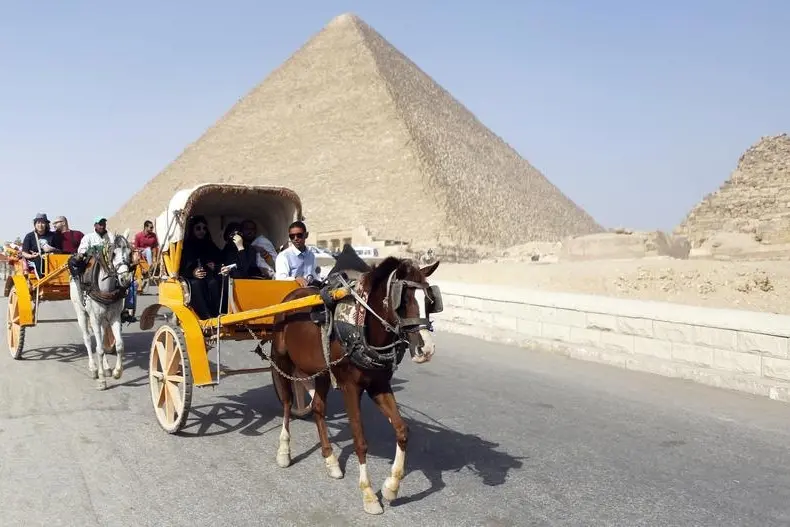PHOTO
Egypt's tourism industry has relied heavily on international visitors for many years. However, it now aims to boost regional and domestic tourism as well.
Arab and Egyptian travelers opt to explore the wonders within their own borders. This trend, driven by factors like affordability, cultural connection, and travel restrictions, presents a unique opportunity for the Egyptian economy.
Factors Fueling Regional Tourism
Tourism in Egypt has been growing, bringing significant revenue to the country. During the first nine months of fiscal year (FY) 2023/2024, tourism revenues grew by 5.3% to $10.9 billion, compared to $10.3 billion in the same period a FY earlier, according to the Central Bank of Egypt’s (CBE) recent Balance of Payments Performance report.
In the first four months of 2024, Egypt's tourism industry has seen a significant boost of 27% in visitor arrivals. This growth is largely driven by a year-on-year (YoY) surge of 54% in Arab tourists, Ghada Shalaby, the country's former Vice Minister for Tourism, announced during the Arabian Travel Market (ATM) 2024.
Several factors, including affordability, contribute to the rise in regional and domestic tourists. Aya Zoheir, Research Head at Zilla Capital, explains to Arab Finance: “Economic variables, such as global inflation and currency devaluation, have made international travel less affordable for Arabs and Egyptians, prompting a shift towards regional tourism within Egypt.”
Meanwhile, Hanin El-Mahdy, an economist and asset management consultant, notes that inflation has made it harder for Egyptians to travel abroad. "Inflation has reduced the marginal propensity to save (MPS), especially for citizens who are not high-income earners and those receiving the minimum wage," she says.
As for tourists from neighboring countries, El-Mahdy indicates that Egypt is a favorable and affordable destination. "Currency devaluation makes Egypt more affordable, as tourists may bear no extra costs. This affordability also enhances the country’s tourism sector by increasing foreign demand," she explains.
Beyond affordability, regional and domestic tourists are drawn to Egypt’s cultural heritage. According to Zoheir, “There is an observable trend among Arab and Egyptian travelers towards exploring their cultural heritage, with Egypt's rich historical sites offering attractive and enriching travel experiences.”
El-Mahdy agrees with Zoheir’s statement, pointing out that Arabs and Egyptians also choose Egypt for its safety, stability, cultural experience, and religious tourism.
Regional Tourism Boosts Local Economy
The growing tourism industry has positively impacted Egypt’s economic sectors. Zoheir states, “The increase in regional and domestic tourism has stimulated job creation across multiple sectors. The tourism industry in Egypt is a significant employer, encompassing hotels, restaurants, transportation, and tour services.”
"Employment in tourism has grown by nearly 10%, surpassing 2.5 million jobs. This means about one in twelve jobs in Egypt is now in tourism," El-Mahdy notes, quoting a recent report by the World Travel and Tourism Council (WTTC).
Different regions in Egypt benefit differently based on the type of tourism trending there. Zoheir states, “The Red Sea resorts have seen significant domestic tourist inflows, driving employment in the hospitality and entertainment sectors.”
“Historical sites in Luxor and Aswan have invigorated local economies, creating more jobs in tourism services and retail. Meanwhile, urban centers like Cairo and Alexandria have benefited from increased tourism, resulting in expanded job opportunities in hospitality and services,” Zoheir adds.
Egypt's tourism industry is welcomingly shifting towards a growing focus on regional and domestic travel. This trend is driven by affordability and interest in exploring cultural heritage, which presents exciting opportunities for the Egyptian economy.
© 2020-2023 Arab Finance For Information Technology. All Rights Reserved. Provided by SyndiGate Media Inc. (Syndigate.info).





















